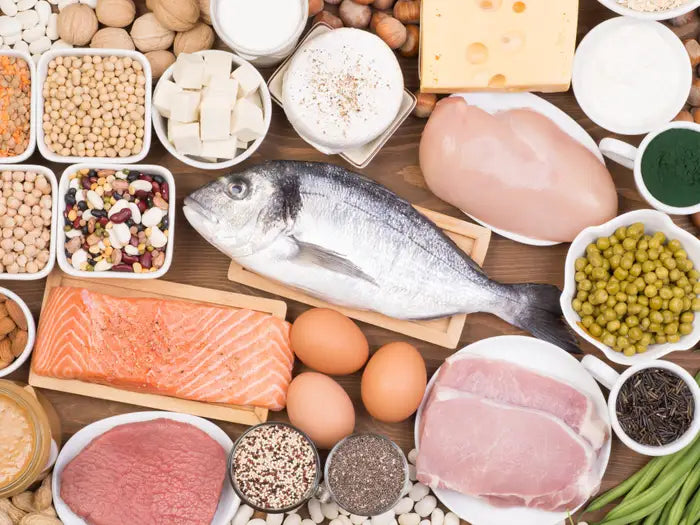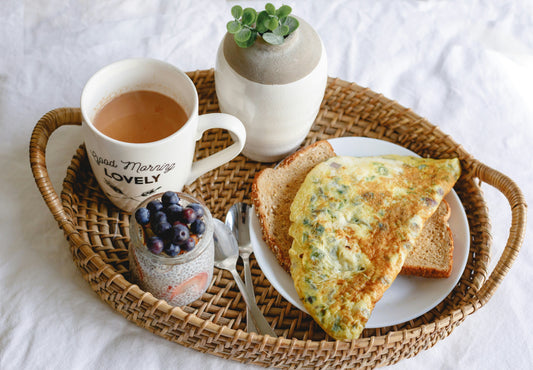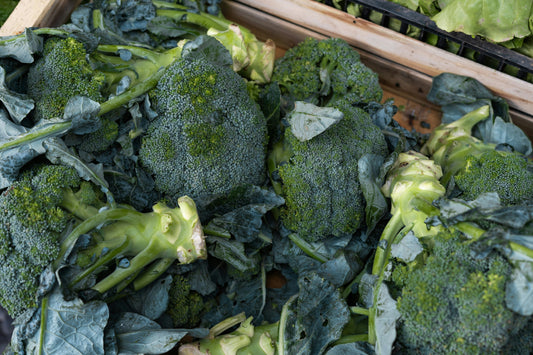Animal foods contain all essential amino acids making them a complete protein, but most plant sources of protein don’t. When relying on plant foods for your protein intake it is important to vary your sources of protein to make sure you get all the essential amino acids. By varying the grains, beans, legumes, nuts, and seeds you eat you can be sure you obtain all essential amino acids.
Protein and hormonal health
- Protein is needed to make most of your hormones
- Low protein diets contribute to low hormone production and lack of ovulation
- Helps you feel full and satisfied after a meal
- Protein helps to reduce the impact of carbohydrates by slowing the absorption of glucose into the bloodstream, improving your response to carbohydrates. Check out my blog on Blood Sugar Control and Hormonal Health here. Good blood sugar control is important for both hormone function and mood stability - protein for the win!
How much protein do women need?
Traditional guidelines suggest that you need about 0.8g-1g of protein per kilo of body weight, but newer research suggests 1.6-2.2g/kg is optimal (e.g. a 65kg woman would need 1.8g x 68kg = 122g of protein per day). Protein needs increase if you are pregnant, breastfeeding, unwell, exercising heavily or elderly.
There is often confusion around how much protein is in a portion of food; for example, 100g of chicken will provide you with only about 30g of protein; no food is 100 per cent protein.
It is important to note that most foods, even green leafy vegetables, contain at least some protein. Meat contains 25–30 per cent protein, eggs 12 per cent, nuts and seeds contain between 15 and 25 per cent, and grains, beans and lentils are between 8 and 20 per cent.
Animal or plant-based protein - what's better?
Documentaries and vegan-insta girlies might make it seem like the argument between animal and plant-based protein is clear-cut, but it's not that simple. Plenty of research suggests that animal protein is inflammatory and plant protein is not. However, most of these studies compared plant protein with grain-fed meat (a problematic form of protein not consumed in large amounts in nz) and did not take into account other factors like intakes of high carbohydrate foods.
My opinion on the debate is that animal proteins have an important role in your diet as they provide all essential amino acids without adding to the carbohydrate load of your diet and provide nutrients like iron, B12 and zinc that are hard to obtain from plant sources. I agree that you should be eating more plants, and your protein intake should be mixed, some from plants, and some from animals.
What does enough protein look like?
Studies show that hormone health improvements are seen when 20-30g of protein is consumed at each main meal.
In a day it might look like this:




For more protein-balanced recipes make sure you take a look at the WBJ Guide to Better Breakfasts, 55 easy recipes to help you reach your protein goals right from the first meal of the day.





